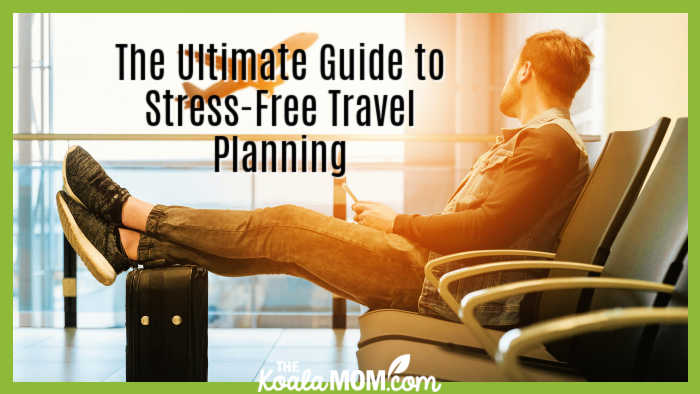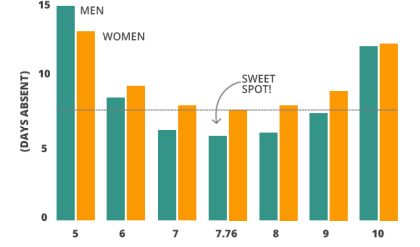
The Ultimate Guide to Stress-Free Travel: 7 Essential Hacks
Travel should be an adventure, a breath of fresh air, a vibrant tapestry woven with new experiences. But too often, the planning, the logistics, the sheer *effort* of getting from point A to point B can morph a joyful escape into a stressful ordeal. Fear not, intrepid traveler! This guide unveils seven essential hacks to transform your journey from a frantic scramble to a serene glide.
1. Embrace the Pre-Trip Zen: The Power of Planning (and Letting Go)
The key to stress-free travel begins long before you even step foot in the airport. Detailed planning, meticulously crafted itineraries, and meticulously checked packing lists are your best allies. Yet, paradoxically, the most crucial element is the ability to *let go*. Overplanning can stifle spontaneity. Think of your itinerary as a flexible framework, not a rigid cage. Build in buffer time, acknowledge that things might not go precisely to plan (and that’s okay!), and embrace the unexpected detours that life (and travel) often throws your way.
2. The Digital Nomad’s Delight: Mastering Travel Tech
Technology is your travel companion, not your tormentor. Leverage apps for flight tracking, real-time translation, offline maps, and currency converters. Download audiobooks and podcasts for those long journeys. Utilize cloud storage to access important documents and photos without relying on physical copies. But remember, digital detox is equally vital. Set boundaries to ensure technology enhances, not overwhelms, your experience.
3. Pack Smart, Travel Lighter: The Art of Minimalism
Overpacking is the travel equivalent of carrying a heavy boulder uphill. Embrace minimalism! Choose versatile clothing items that can be mixed and matched. Roll your clothes instead of folding them to save space and prevent wrinkles. Consider using packing cubes to organize your belongings. Remember, you can always buy essentials at your destination if needed – and often, at a lower price!
4. Beat the Airport Blues: Navigating Travel Hubs with Ease
Airports can be chaotic. Prepare in advance: check in online, download your boarding pass, and familiarize yourself with airport layouts. Arrive early to account for potential delays. Pack snacks and entertainment to avoid hanger-induced meltdowns. And remember, airport staff are there to help – don’t hesitate to ask for assistance if needed.
5. The Local’s Secret: Immersing Yourself in Culture (Without the Stress)
Embrace local culture but respect local customs. Research basic phrases in the local language. Take advantage of local transportation options – buses and trains often offer more authentic experiences than taxis. Try local food and engage with the people you meet, but be mindful of your personal safety and belongings. A little preparation can greatly enhance your cultural immersion.
6. Wellness on the Go: Prioritizing Self-Care in Transit
Long flights and journeys can be taxing. Prioritize self-care! Stay hydrated, eat nourishing foods, and get some light exercise whenever possible. Utilize mindfulness techniques, like meditation or deep breathing, to combat stress and anxiety. A well-rested and centered you is a happy and adaptable traveler.
7. The Unexpected Detour: Embracing the Art of Adaptability
Travel is unpredictable. Delays, cancellations, and unexpected mishaps are inevitable. Cultivate adaptability. Maintain a positive attitude, focus on solutions rather than problems, and remember that every unexpected detour can lead to a unique and memorable experience. Flexibility is the ultimate travel superpower.
Stress-Free Travel Checklist:
| Task | Status | Notes |
|---|---|---|
| Book flights/accommodation | ☐/☑ | Confirm booking details |
| Pack bags | ☐/☑ | Check weather forecast, pack accordingly |
| Download travel apps | ☐/☑ | Offline maps, translator, currency converter |
| Inform bank/phone provider | ☐/☑ | Prevent unexpected charges |
| Research destination | ☐/☑ | Local customs, transportation, emergency numbers |
By integrating these seven hacks into your travel preparations and mindset, you’ll not only reduce stress but also enhance your overall travel experience. So, pack your bags, embrace the unknown, and embark on your journey with a sense of serenity and excitement.

Additional Information
Beyond the Hacks: A Deep Dive into Stress-Free Travel
While “7 Essential Hacks” offer a practical starting point for stress-free travel, a deeper analytical lens reveals the underlying psychological and logistical factors contributing to travel stress, and how these hacks address them. This analysis expands upon the core principles, providing a more robust framework for minimizing travel-related anxiety and maximizing enjoyment.
1. Pre-Trip Planning: The Foundation of Serenity: The “hack” of meticulous planning addresses the cognitive appraisal of threat. Stress, according to Lazarus’s cognitive appraisal theory, arises from the perception of a situation exceeding one’s coping resources. Thorough pre-trip planning directly counters this:
- Detailed Itinerary vs. Flexible Framework: While a rigid itinerary might appear efficient, its inflexibility can be a source of stress if delays occur. A more effective approach is a flexible framework, outlining key activities and booking essential elements (flights, accommodation) while allowing for spontaneous exploration. This balances control with adaptability, mitigating stress from unforeseen circumstances.
- Data-Driven Decision Making: Travel meta-search engines and flight-tracking apps provide data-driven insights, enabling informed decisions about flight times, accommodation costs, and potential delays. This reduces uncertainty, a significant stressor. For example, knowing the historical punctuality of a particular airline or the average check-in time at a specific airport allows for proactive time management, eliminating rushed moments.
- Proactive Problem Solving: Anticipating potential problems (lost luggage, medical emergencies, language barriers) and creating contingency plans significantly reduces anxiety. Travel insurance, downloaded offline maps, and pre-learned basic phrases in the local language are examples of proactive measures that transform potential stressors into manageable challenges.
2. Packing Light: The Physical and Mental Untangling: The “pack light” hack addresses both physical and psychological burdens. Carrying excessive luggage leads to physical strain and logistical complications (e.g., navigating crowded airports, waiting for baggage). But more importantly, it contributes to cognitive overload:
- The Paradox of Choice: Having too many clothing options ironically creates decision fatigue, adding unnecessary stress to already busy travel days. A minimalist approach to packing simplifies choices, freeing up mental energy for enjoying the trip itself.
- Minimizing Risk: Less luggage reduces the risk of loss or damage. The emotional distress associated with losing valuable possessions during travel is substantial, highlighting the psychological benefit of packing light.
- Enhanced Mobility: The ease of movement afforded by lighter luggage enhances the overall travel experience, allowing for greater spontaneity and enjoyment of activities.
3. Mastering the Art of Airport Navigation: Airport stress often stems from information overload and time constraints. Effective strategies involve:
- Leveraging Technology: Airport apps provide real-time information on flight status, gate changes, security wait times, and even available amenities. Proactive use of these resources reduces uncertainty and allows for better time management.
- Strategic Planning: Understanding airport layouts, security procedures, and potential bottlenecks allows for efficient navigation. Pre-checking in online, using self-service kiosks, and utilizing priority lanes can significantly reduce wait times.
- Mindfulness Techniques: Employing relaxation techniques like deep breathing or meditation can help manage anxiety during crowded or stressful airport situations.
Further Research and Future Directions: Future research could focus on the specific demographic factors influencing travel stress (age, travel experience, personality traits). Moreover, exploring the efficacy of different stress-reduction techniques in specific travel contexts (e.g., backpacking vs. luxury travel) would provide valuable insights. Case studies comparing the travel experiences of individuals employing different stress-management strategies could quantify the impact of these strategies on overall satisfaction and well-being. By combining empirical evidence with practical advice, we can move beyond simple “hacks” to a more comprehensive understanding of how to achieve truly stress-free travel.






